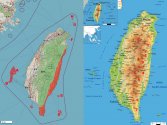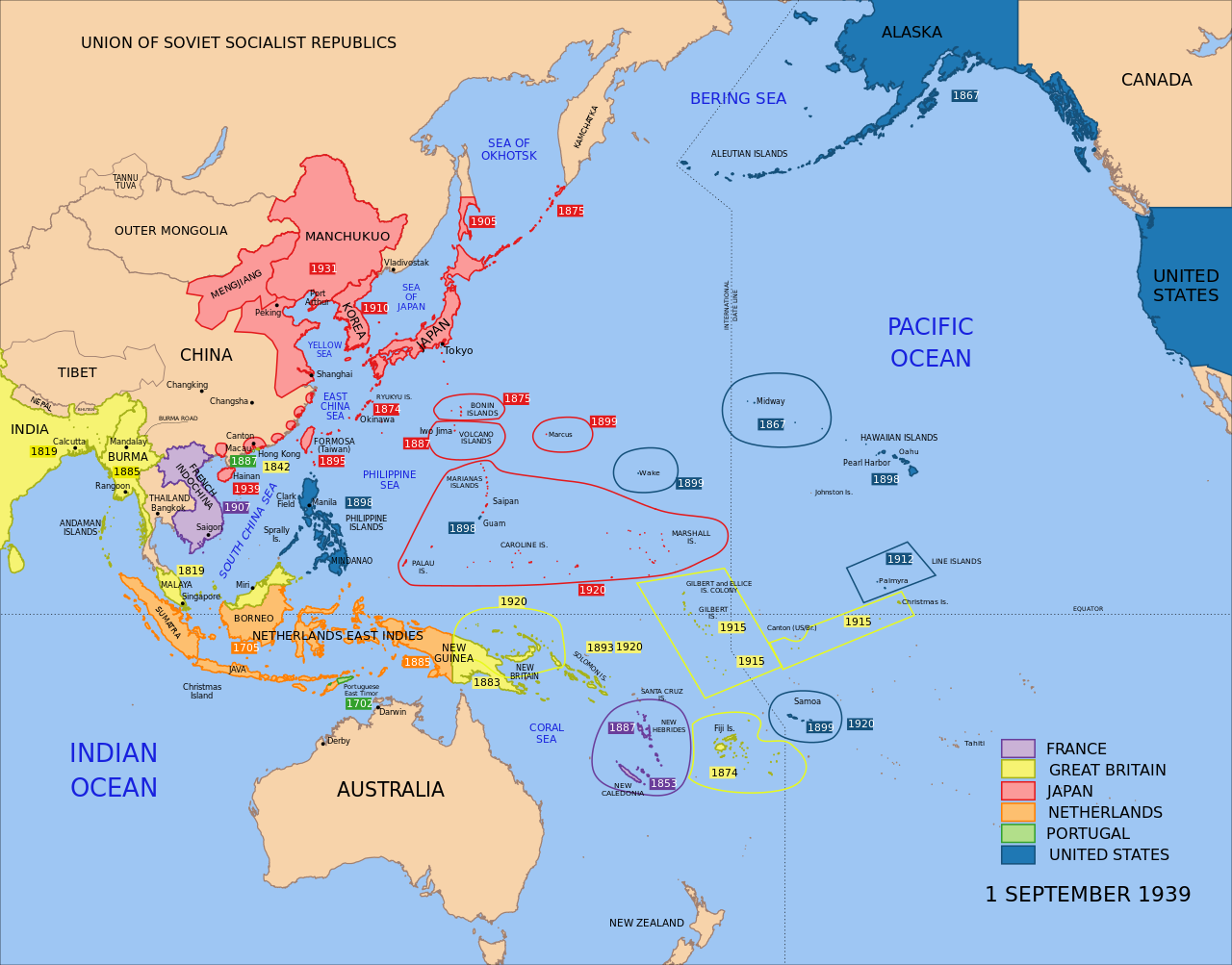What he is saying, is that if the PLA does not take the opportunity to carry out a comprehensive first strike with strategic initiative to target key staging areas of US military power in the region, then it offers the US to redeploy and surge and harden its positions in the western pacific to a degree which may result in the PLA and China overall losing a conflict over Taiwan and/or the western pacific at large.
Patchwork wrote a series of posts relating to this in the past on Reddit which has been copied over a few times on other places. I don't have the text, but others might.
It's Rumsfeld and Wolfowitz all over again but those are no longer
unknown unknowns. Twenty years after the lesson should have been learned you are all making the very same error, just from the other direction.
Correct understanding of the internal political dynamic in America is fundamental to correct choice of strategy in a war against America. You always choose the strategy that will best deprive the enemy of the
will to fight which is the
primary and fundamental resource in any conflict.
American society is deeply polarised because of the nature of American political system and culture that already threatens to rip the country apart. The important factor is that there is no "one America" but increasingly it's "two Americas", similarly to the antebellum era. The political dynamic in America is more like a low-intensity civil war than political process in a mature democracy. It only persists as a coherent political organism because due to geography USA lacks predators in its habitat.
In the US everything is increasingly perceived in partisan terms, including foreign policy, which is very visible in how the conflict with Russia is being resolved. Democrats oppose Republican wars o partisan basis. Republicans oppose Democrat wars on partisan basis. Only "American wars" receive bipartisan support but the legacy of GWoT is that Americans have difficulty imagining such war, and default to partisan logic.
Consider Russia and Ukraine:
US aid is a fraction of the total cost of Iraq and Afghanistan wars, it objectively brought measurably greater benefits to US economic and political power (e.g. strengthening of USD, shifts in energy markets, realigning of fractured alliances in Europe). It was arguably the greatest strategic success for the US since Gulf War that benefits both partie's constituents and yet the American public still views the war in partisan terms and have opposed and polarised views on it which limits what DC can do.
China attacking US military assets guarantees a bipartisan war. Therefore it is of utmost importance that China does nothing that could unify the US around external threats.
Furthermore:
The US military is physically incapable of committing to a Taiwan scenario that turns into full-scale war. There is a significant effort to up-arm with orders for 2024-2026 and plans to expand production of key munitions beyond that but that only ensures that US forces will have the ability to shoot back if deployed. PLA knows how to count cells and missiles.
Warfare is a game of probabilities which is why at a fundamental level the traditional overmatch of 3:1 at a minimum is always pursued. It's simply too easy to lose 1 by accident when you start with 2:1 and end up in 1:1 scenario which can go each way. With 3:1 you can absorb losses and retain advantage. And naturally more is better. See Ukraine for reference.
The US has global commitments which underpin their economic model which underpins the political stability of the country. I assume that in SDF of all places those don't require elaboration. All of those commitments consume resources. A lot of them.
But even if we assume that all of USN is moved to WestPac then - CVN and SSN excluded - it provides for 2:1 advantage and only combined with Japan it reaches 3:1. China has also the benefit of landmass for air power projection while CVNs have inherent hard limitations and vulnerabilities and land is scarce for USAF. SSNs are an asset that is largely wasted on coastal sieges.
As for Taiwan, in may of 2022 I wrote a post detailing a hypothetical scenario which in my view solves the issue of external intervention and requires minimal force deployment in minimal amount of time.
Singapore is not in a position to disallow anything. If there's a conflict between China and the US and a country where the US is based tries to prevent the use of its facilities, the US will attack it. In Singapore's case I doubt things have to go that far since they operate F-35s, the US could...
www.sinodefenceforum.com
Instead of the absurd notion that PLA has to land on western coast and capture dense urban areas and political centres by force I propose that it captures the sparsely populated eastern coast, deploys coastal and air defenses, puts a fleet to the sea to protect the approach zones, sticks the symbolic flag and simply declares the conflict over. The rest will be sorting out the political details to sell the reunification as matching the framework of China's diplomatic positions globally.

The primary beachhead is the southermost peninsula with ~100k population and the two islands to the east. Once the beachhead is captured it can deploy a large number of troops along the roads to support other landing zones on the east coast. It's mostly empty areas.

This is a viable operation that makes much more sense than whatever the think-tanks come up with. And it can in theory be done right now. Later is better, but it is possible
now.
Once that happens ROC is put effectively under siege and US and Japan have to physically break through PLA's defenses to relieve ROC which by that time will either be in a state of collapse or will be struggling to counter PLA offensive because to do so will require leaving the west undefended (and commit to assault across narrow mountain passes and coastal strips with enemy air superiority). In effect the USN and JMSDF will have to perform amphibious landings, then capture and hold the territory of an island with logistics dependent on sea and air lines of communication against the entire military potential of a peer opponent concentrated in the theater.
It has never been done because it can't be done. And even if it could be done then the losses would be excessive and which of the two belligerents is better capable of reconstituting its force - US to maintain control of Taiwan across the Pacific or China to recapture an island 200 km off its coast?
This scenario is basic geography which is why the only way to prevent it is to deploy sufficient naval force in the theater to pre-empt PLA operation and the US can't afford it while China can because to counter US fleets they barely need to leave the port.
The "hardened positions" that our friend Patchwork imagines exists only in his imagination because while he extatically commits himself to long essays filled with tactical acronyms he never does the most important thing that any competent military planner does before he plans any operation:
calculating the logistical footprint of sustaining an active force capable of achieving decisive overmatch against PLA in Taiwan theater of operations that can be sustained indefinitely in case of no resolution to the conflict.
I'll leave that exercise to the reader. It will be eye-opening and will demonstrate why amateurs talk tactics and professionals talk logistics.
US was thrown out of WestPac by Japan in 1941/42 but returned with vengeance two years later because of logistics - the crippling of Japanese logistics by US submarines and the simultaneous reestablishing of expanded US logistics in the theatre.
Unless you know how to magically shift tectonic plates to make the first island chain equidistant from both China and the US this conflict has only one inevitable solution. Crack your fortune cookie if you need a hint as to what it is.
There is no war over Taiwan because China has 25 years to reclaim it peacefully and US knows it will lose that war because of fundamentals. Unless a radical element enters the equation (like Trump or someone similar) it's all
posturing for domestic audiences over a done deal.
Learn to read the room you guys. Almost all the moves that matter have been done already. The battle has been fought. Now its counting the casualties on both sides. It's like that scene from Hero where Nameless and Sky fight it out in their mind. Nobody risks a war which can disrupt profitable trade. Those that point to WW1 as counter-example forget that when it started it was meant to be over before Christmas and everyone was surprised when it was, five Christmases later.
And on that note:
Merry Christmas and Happy New Year everyone! 



